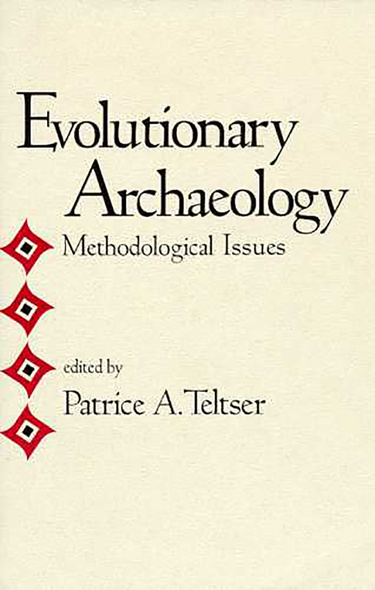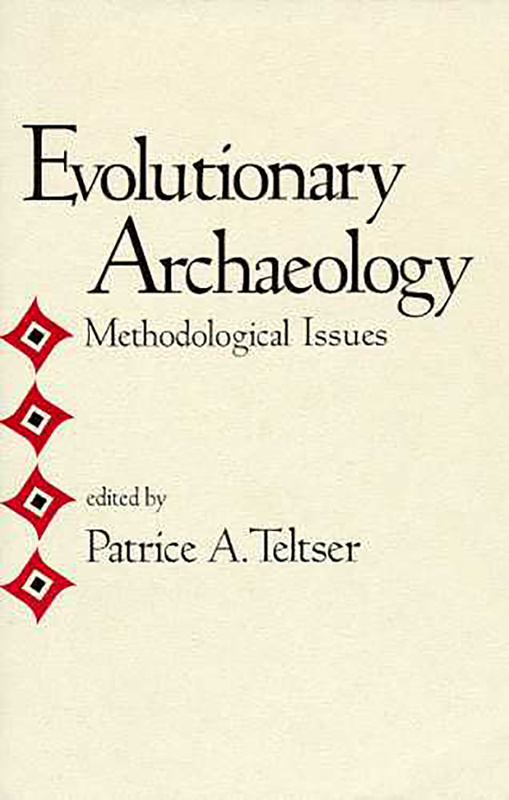Evolutionary Archaeology
Methodological Issues
Edited by Patrice A. Teltser
The University of Arizona Press
What is the role of neo-Darwinian evolution in explaining variation in prehistoric behavior? Evolutionary Archaeology, a collection of nine papers from a variety of contributors, is the first book-length treatment of the evolutionists' position. All archaeologists, and especially those with a specific interest in method and theory, will find much here to challenge traditional theory, solidify the evolutionists' position, and stir further debate.
Evolutionary archaeologists argue that Darwinian natural selection acts on human behavior, resulting in the persistence of alternative human behaviors and the material products of those behaviors. The contributors address the methodological requirements of evolutionary theory as it may apply to the nature of archaeological data. Several contributors evaluate the methodological implications of basic evolutionary principles, including the structure of explanations, the units of evolution and analysis, and the measurement of information transmission. Others explore the role of specific analytic approaches such as seriation, raw material sourcing, and comparative and engineering analyses. Still others confront the issue of reformulating archaeological problems from the point of view of evolutionary theory.
By focusing on the methodological requirements of evolutionary theory, these essays go far in meeting the challenge of building new archaeological method. The work contributes to a better understanding of cultural evolution and builds toward a new, logical framework to explain variation in the archaeological record.
Evolutionary archaeologists argue that Darwinian natural selection acts on human behavior, resulting in the persistence of alternative human behaviors and the material products of those behaviors. The contributors address the methodological requirements of evolutionary theory as it may apply to the nature of archaeological data. Several contributors evaluate the methodological implications of basic evolutionary principles, including the structure of explanations, the units of evolution and analysis, and the measurement of information transmission. Others explore the role of specific analytic approaches such as seriation, raw material sourcing, and comparative and engineering analyses. Still others confront the issue of reformulating archaeological problems from the point of view of evolutionary theory.
By focusing on the methodological requirements of evolutionary theory, these essays go far in meeting the challenge of building new archaeological method. The work contributes to a better understanding of cultural evolution and builds toward a new, logical framework to explain variation in the archaeological record.





